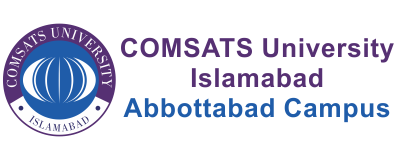Microbiology is the study of organisms that can be cultured on growth media, isolated, and sterilized and are usually invisible to the unaided eye. The scope of microbiology involves the study of microorganisms such as bacteria, viruses, fungi, and protozoa, their characteristics, behavior, interactions, and applications in various fields including healthcare, agriculture, industry, environmental science, and biotechnology. It encompasses understanding microbial diversity, physiology, genetics, pathogenesis, ecology, and the development of diagnostic methods, treatments, vaccines, and biotechnological processes.
Scope of Microbiology
Studying microbiology is instrumental in comprehending the causes, transmission, and mechanisms underlying various diseases, thereby facilitating the development of more effective prevention, diagnosis, and treatment strategies. Additionally, it plays a vital role in safeguarding public health, serving as the foundation for the development of antibiotics, antivirals, and other medications. Microbiology’s significance extends to ensuring food safety through contamination prevention, preservation technique advancement, and ongoing monitoring of food quality. Similarly, a deep understanding of microbiology aids in the management of environmental challenges, including pollution control and effective waste management strategies.
Eligibility Criteria
- F.Sc. or A level (premedical or equivalent) with 50% marks
- 50% aggregate after NTS NAT Test
- Fulfillment of all other university rules and regulations
Scholarships
The following scholarships are available for the students
- COMSTS Abbottabad Merit Scholarship
- Sibling Fee Waiver
- 4 GPA holder scholarship
- Female Need Based
- HEC Need-Based Scholarship
- Dhamtor Scholarship
- Top Merit List Scholarships
- Top 10 Board Positions
- Special Scholarships for Backward Areas
Why Study at the Department of Biotechnology
Highly qualified Ph.D. faculty members
State-of-the-art research facilities for
- Bioinformatics
- Biofuels
- Biotechnology
- Genetic Engineering
- Human Molecular Genetics
- Microbiology
- Molecular Biology
- Plant Tissue Culturing
- High Tech Lab
Career Opportunities
Following are just a few examples of the diverse career opportunities available to microbiologists in Pakistan.
- Clinical Microbiologist: Work in clinical laboratories, hospitals and molecular diagnostic centers
- Industrial Microbiologist: Employed in industries such as pharmaceuticals, food and beverage, cosmetics, and biotechnology
- Public Health Microbiologist: Contribute to disease surveillance, vaccination campaigns, and health education programs by working in national health institutes, hospitals, and disease eradication programs
- Food Microbiologist: Ensure food safety and quality by conducting microbiological analysis in food and beverages industries.
- Agricultural Microbiologist: Research and develop microbial solutions for agricultural applications, including biofertilizers, biopesticides, and soil amendments. Work in government department and research centers
- Pharmaceutical Microbiologist: Work in pharmaceutical companies or research institutions to contribute to the development of new drugs and therapies.
- Education and Academia: Pursue teaching and academic research positions in universities and colleges.
Research Areas
- Biological synthesis and application of nanoparticles
- Application of novel microbial species and microbial enzymes for industrial applications
- Exploring medicinal plants for their antimicrobial potential
- Anaerobic digestion and generation of biofuels
- Bioremediation and phytoremediation of degraded soils, wastewater, and water bodies by exploring and manipulating useful microbes and enzymes
- Bacterial biofilms and antimicrobial activity of natural and synthetic compounds
- Computational modeling of microbial enzymatic reactions
- In silico modeling of antimicrobial agents

